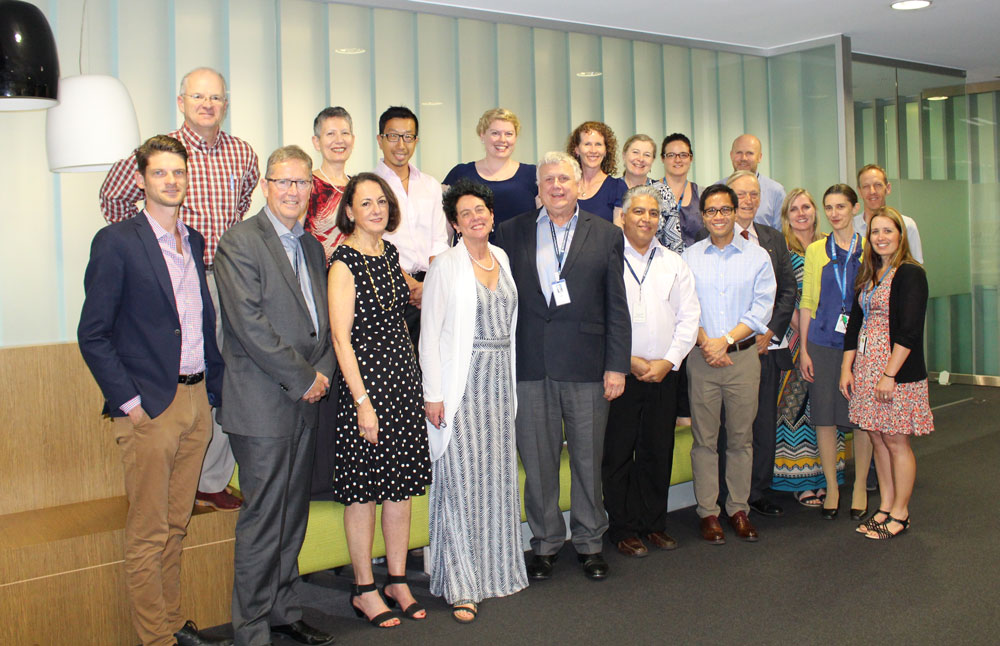Earlier this month we welcomed our U.S. research collaborators from the Berman Center for Outcomes and Clinical Research, along with guests from the National Cancer Institute (NCI), to discuss the progress and future of the ASPREE trial and sub-studies.
The Berman Center for Outcomes and Clinical Research co-ordinates conduct of the ASPREE trial in more than 30 sites across the USA.
Approximately 80 national and international senior researchers are collaborating on the principal ASPREE trial and/or an ASPREE sub-study.
ASPREE sub-studies include: ACES (aspirin and cancer); ALSOP – questionnaires identifying medical and social factors that may affect the ability to age well; ASPREE-AMD (aspirin and age-related macular degeneration); ASPREE-ANTISEPSIS (aspirin and severe infection); ASPREE-D (aspirin and depression); ASPREE- FRACTURES (aspirin and falls and fractures); ASPREE-HEARING (aspirin and age-related hearing loss); ASPREE-Knee (aspirin and osteoarthritis); ASPREE-NEURO (aspirin and microvascular bleeds in the brain); ENVIS-ion – changes in retinal and brain vasculature and SNORE-ASA (aspirin and obstructive sleep apnoea).
The ASPREE Healthy Ageing Biobank, which is collecting follow-up blood samples three years after the first collection, is a repository for biological indicators of health (or disease). Two genomic sub-studies are in collaboration with the Garvan Institute of Medical Research and the Mount Sinai School of Medicine in New York. Two new sub-studies are investigating the effect of androgens on cardiovascular health and mortality in ASPREE women (SHOW), and measuring levels of inflammatory biomarkers in plasma donated by ASPREE participants to the ASPREE Healthy Ageing Biobank.
The NCI (National Cancer Institute, a branch of the National Institutes of Health in the U.S.) awarded in 2012-2013 funding to collect cancer information and additional blood and urine samples and tumour samples from ASPREE participants for cancer research.
Recently, the NHMRC awarded to Monash University grants for completion of the ASPREE trial and to further investigate the effect of low-dose aspirin on colorectal cancer in older adults.

Updated 27.02.2021




